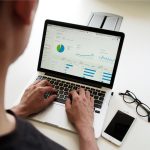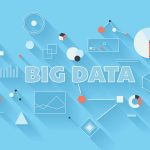Introduction to collecting data Whether we appreciate it or not, everything we do in our daily lives is measurable by some metric. Therefore, data could be collected on every aspect of our daily lives. The advent of modern technology in day-to-day life has meant that there has been a mammoth increase in the amount of this kind of data being generated. In many cases, this kind … [Read more...] about Collecting Apple and Spotify Data on Myself : Here is What I Learned
Big Data
Learn everything you need to know about big data. Find out how companies are using this revolutionary technology and what it means for your business strategy.
What is Data Profiling and How To Use It To Understand Financial Data?
Businesses - especially financial and insurance companies - invest a lot of resources in gathering data from a wide variety of sources. They also strategize and implement processes that utilize the collected data for making decisions, calculating risks, and forecasting profits. But 24 percent of insurers say that they are 'not very confident' about the data they use to assess … [Read more...] about What is Data Profiling and How To Use It To Understand Financial Data?
Dealing With Air Pollution in Data Centers
Keeping data center air as free of contaminants as possible is essential to operations. It's important to those working inside the center, and a buildup of pollution could also damage the machinery. Outages are happening too frequently and are only becoming more expensive to deal with. Pollutants like methane and black carbon are creating the most problems for climate change - … [Read more...] about Dealing With Air Pollution in Data Centers
6 Crucial Steps For Setting Your Data Team KPIs
As analytics professionals, we deal in data: serving ad-hoc reports on a minute's notice, pulling queries for executives, and generally forecasting company performance across a variety of metrics. But how can we be truly successful if we don't measure our own performance, too? In this article, we discuss six important steps to setting goals for our own data teams, from taking … [Read more...] about 6 Crucial Steps For Setting Your Data Team KPIs
What is Big Data and Human Privacy?
Yuval Noah Harari, a famous historian, posits, "Accumulation of data in the hands of governments, companies, and organizations renders human privacy vulnerable." Spying on citizens has been present in human society from the very beginning. Once KGB, CIA, MOSSAD, and RAW used human capital to invade human privacy and spy on others. Resources at their disposal were limited. … [Read more...] about What is Big Data and Human Privacy?
What is big data?
Big data is a term that refers to the massive amount of digital data created and shared every day. Big data can transform how we live, work, and communicate. It can be used to improve everything from public health and urban planning to business and marketing.
Big data is also changing the way we think about privacy and security. The volume, velocity, and variety of big data present challenges and opportunities for organizations and individuals. Regardless, big data is here to stay, and its impact will only continue to grow in the years to come.
What is big data analytics?
Big data analytics is the process of turning large, complex data sets into actionable insights. Businesses use various analytical tools and techniques, including machine learning and statistical analysis, to do this.
Big data analytics can be used to improve decision-making in areas like marketing, operations, and customer service. It can also be used to identify new business opportunities and optimize existing processes. With the help of big data analysis, businesses can gain a competitive edge by using their data better.
Want to learn more about big data? Datafloq has courses available. Contact us to get started.
When was big data introduced?
The term big data was coined in the 1990s, with some giving credit to John Mashey for popularizing the term. However, the concept of big data has been around for much longer.
Where does big data come from?
In the early days of computing, scientists and businesses began to realize that the amount of data being generated was increasing exponentially. As a result, they began to develop new methods for storing and processing data.
Over time, these methods have become increasingly sophisticated and have played a key role in enabling businesses to make sense of vast amounts of information. Today, big data is used in various industries, from retail to healthcare, and its importance is only likely to grow in the years to come.
What are examples of big data?
One of the most common examples of big data is social media data. With over 2 billion active users, Facebook generates a huge amount of data every day. This includes information on user interactions, posts, and even location data. Analyzing this data can help companies better understand their customers and target their marketing efforts.
Another example of big data is GPS signals. These signals are constantly being generated by devices like cell phones and fitness trackers. When combined with other data sets, GPS signals can be used to provide insights into everything from traffic patterns to human behavior. Finally, weather patterns are another type of big data set. By tracking these patterns over time, scientists can better understand the impact of climate change and develop strategies for mitigating its effects.
How do companies use big data?
Companies use big data in marketing, product development, and customer service. By analyzing large data sets, businesses can identify patterns and trends that would be otherwise difficult to spot. For example, a company might use big data to track customer behavior patterns to improve its marketing efforts.
Alternatively, a company might use big data to improve its products by identifying areas where customers are most likely to experience problems. For instance, big data can be used to improve customer service by finding pain points in the customer journey. Ultimately, big data provides companies with a valuable tool for gaining insights into their business operations.







